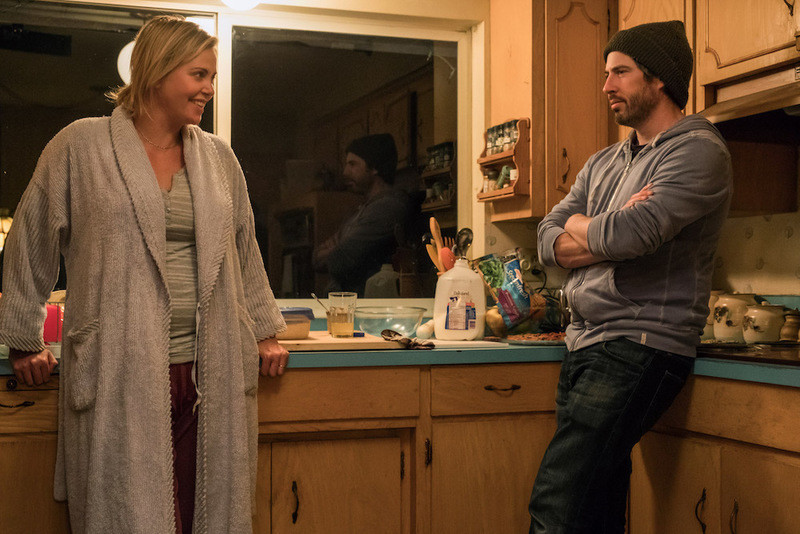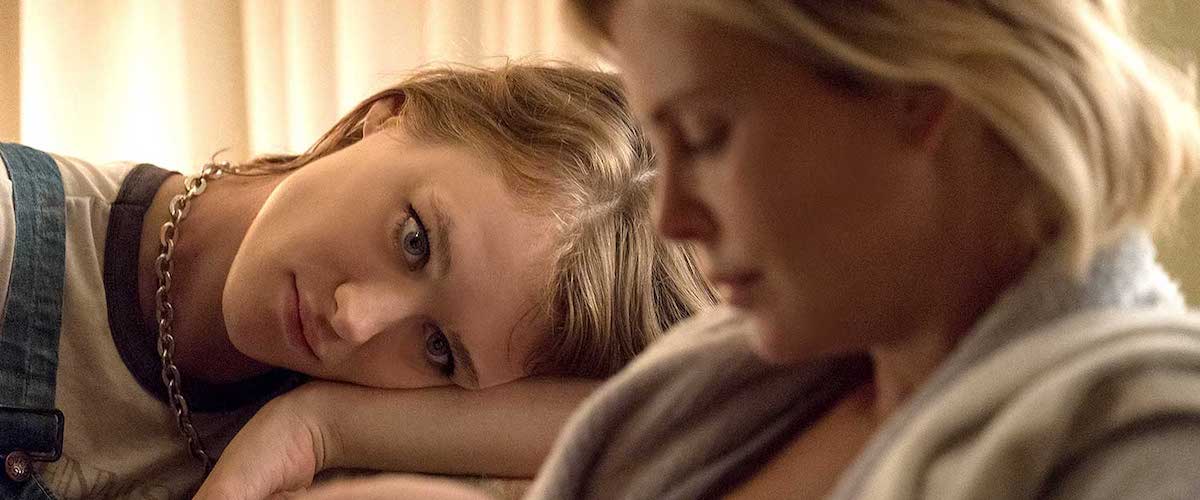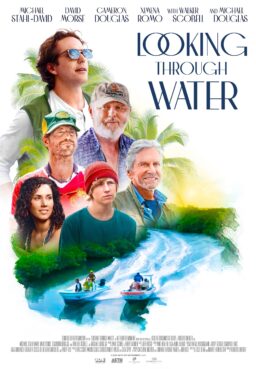With “Tully,” their third collaboration, director Jason Reitman and screenwriter Diablo Cody are approaching a “Before Sunrise”-style trilogy about the challenges of growing up and getting older.
It may not be the same set of characters, but “Juno,” “Young Adult,” and now “Tully” can be seen as a continuing story with smart, flawed female protagonists. The first was a pregnant teenager (played by Ellen Page), while the second was a floundering author (Charlize Theron) trying to reclaim the life she thought she was going to have when she was in high school. In “Tully,” Theron now plays Marlo, a married mother of two, pregnant with a third, trying to connect with the person she once was when all of her time and attention was not taken up by obligations to others. Mackenzie Davis is the title character, a night nanny who turns out to be just what the exhausted mother needs, in ways that surprise her and us.
In an interview with RogerEbert.com, Reitman and Davis talked about bringing their own history to the story.

Jason, I loved your montage that so bittersweetly evokes those numbingly exhausting first months of motherhood. Tell me how you put that together.
JASON REITMAN: I’m so happy you asked about that! That’s something that was on our call sheet every single day and it was really important to us that we get that right. There are so many movies that examine and portray parenting and it often comes across as slapstick. Parenting is one of these odd taboo subjects in a time when we share our most intimate details. We will describe what medication we’re taking but we still won’t share the intimacies and struggles of parenting in a real way. So we gave a questionnaire to twelve mothers and asked them to give us anything they were willing to share about the first three months of being a parent. It was through these questionnaires that we got these odd details like putting the baby on top of the dryer and the amount of moms and dads that drop their phones on their babies. We were constantly shooting it and there was an editor who worked only on that montage throughout the film.
Mackenzie, we will protect your character’s secrets, but tell me how you would describe her to a friend.
MACKENZIE DAVIS: She occupies this really nice, familiar, but now a bit past time of your 20’s, when you have this sense of being old enough to have this strange wisdom about the world. It’s almost grating because you haven’t earned it; you haven’t lived long enough to feel like you have some say in the room. But you no longer feel like a child anymore.
She really digs into that wisdom and I find her very wise while still being naïve. She approaches the world with humility and interest and above all curiosity, which is a really lovely quality in a person because she wants to understand the world that you don’t understand. She offers this curiosity into Marlo’s life when Marlo is so entrenched in the doldrums of child rearing and managing a house and not having support. Tully all of a sudden shines a light on what is lovely about it and the stuff that should be about it, and she gives Marlo a sounding board for her own experience.

Tully describes herself as having an energy surplus, which is a big contrast to Marlo’s exhaustion. How did you make that a part of the role?
MD: I found that really easy with Tully because she’s really essential. It’s not that she’s not an interesting, layered person, but she doesn’t have a lot of ulterior motives. She’s really hyper-present in a way not a lot of people are, and really experiencing things in the moment without calculating about what they mean for her past or future. That made her lovely and refreshing to play.
Jason, what is it like to work with Diablo Cody as her stories and your lives move through time?
JR: Diablo and I first met twelve years ago. I could never have guessed at the beginning of this journey that we would be writing this sort of diary together every five years. We’re about the same age and there’s all this kind of connective tissue between us. There are things about life I don’t have the words for and she just articulates it perfectly. I feel very lucky that I’m the beneficiary of her brilliant writing.
Mackenzie, if you could give some advice to the you of ten years ago, what would it be?
MD: It’s funny, I was surrounded by the me of the past when we made this film. We shot it in Vancouver and then three intense days in New York and both places were weirdly part of my world. In Vancouver, we shot at a house right around the corner from where I went to school for thirteen years, that I would walk by every day. And then in New York we were in the neighborhood I used to live in, so it was a strange experience. What would I say to me at age 21? Oh, “you’re skinny enough.” I think ten years ago I wanted to have everyone love me and to be beautiful and to be smart enough to have everyone respect me and I think I would tell myself to chill on all of that.
Jason, what about the story most resonates to your experience as a parent?
JR: Outside of the details we were going for, there’s this underlying idea —Marlo refers to the baby as “a blessing.” It’s the kind of joke that Charlize knows perfectly how to pull off. It speaks to this concept that we’re only allowed to talk about parenthood as a blessing. We do not always talk about how scary it is; how you are there in the middle of the night wondering if you are ruining your child, or how alone it can feel. And what a blessing it would actually be for there to be a knock on the door, and this woman would walk through and really see you and really forgive you for all the flaws that you carry and that you see in the mirror when you look at yourself.












